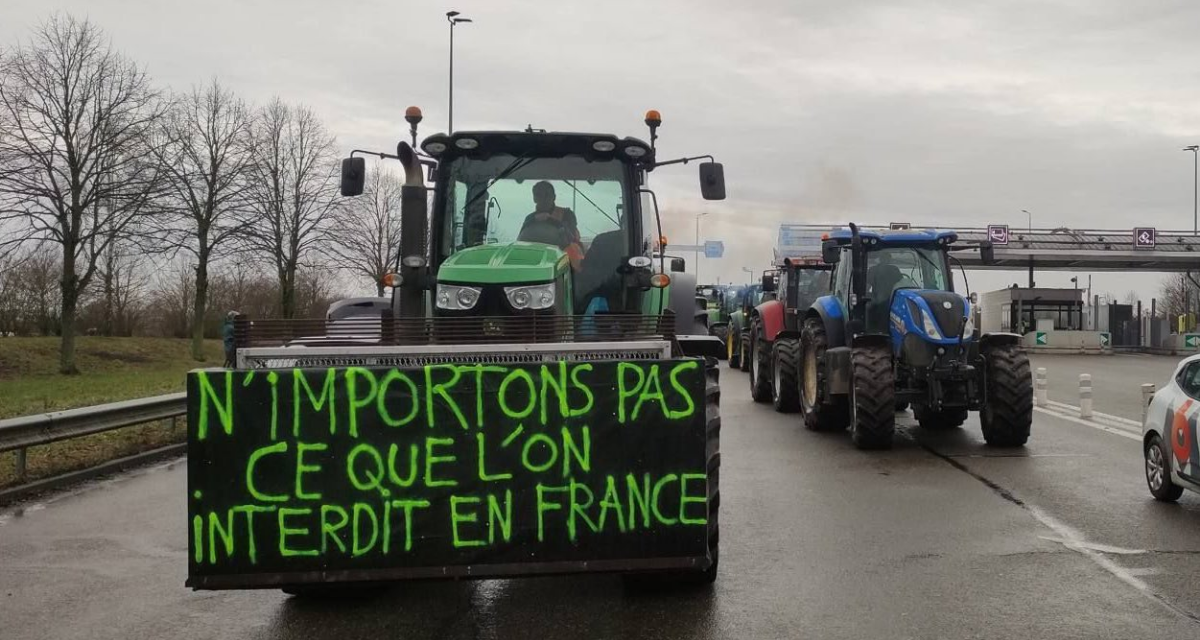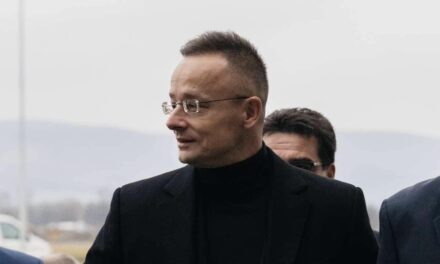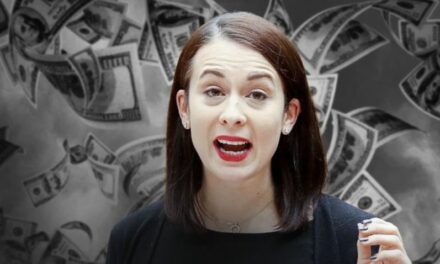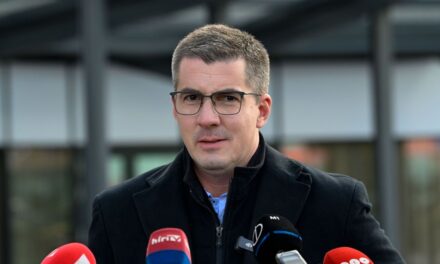The interests of Ukrainian companies proved to be more important than the Union's own producers.
At the last moment, the EU can extend the trade benefits granted to Ukraine until June 2025. Although the new agreement already contains market protection measures, Brussels still does not help Eastern European farmers.
This week, the European Parliament will vote in its last plenary session before the elections on another one-year extension of the trade benefits granted to Ukraine.
If the representatives vote, until June 2025, Ukrainian food can still enter the European Union without customs and quantitative restrictions.
At the same time, the new rules contain certain restrictions, mainly due to pressure from France and Poland, and the EU countries further tightened Brussels' proposal at the last minute, even though they had already agreed on the previous text.
The final submission contains market protection restrictions in several product lines.
If the import of chicken meat, eggs, honey, sugar and certain cereals from Ukraine reaches the average volume of the second half of 2023, 2022 and 2021, new items can no longer be imported duty-free into the EU.
Adoption of the draft, which was supplemented with new restrictions at the last minute under the pressure of France, is almost certain, since the parliament will meet for the last time until the EP elections in June.
If the majority of representatives do not support the proposal, then the trade agreement in force since 2016, which was temporarily suspended due to the war, would be reinstated from June. However, there is little chance of this.
For two years now, Eastern European farmers have been expecting Brussels to introduce real market protection measures in addition to maintaining the low-quality, cheap and price-reducing solidarity measures that greatly reduce the competitiveness of European farmers.
However, the request of the Eastern European member states was ignored by the EU this time as well, the tightened regulation still does not limit the import of the two crops causing the biggest problems, i.e. wheat and barley.
The acceptance of the planned protective measures was greatly helped by the fact that the Ukrainian imports had already put the demonstrating French farmers, primarily the poultry and egg producers, as well as the sugar industry in a difficult situation.
Although France sided with the Eastern European countries, Germany did not want to hear about the EU extending the protection clause to additional foodstuffs.
Berlin is one of the biggest European supporters of Kyiv, even though German farmers have also been at a significant disadvantage compared to Ukrainian agricultural companies.
The reason for this is that Ukrainian wheat costs an average of 150 euros per ton, while the cost price of the raw material grown in the EU - due to stricter regulations and the different ownership structure - is at least 220 euros, that is, at a transfer price of at least 250 euros per ton, it would represent a real income for EU farmers.
With the virtually unlimited amount of Ukrainian wheat that is almost 70 percent cheaper per ton coming to the EU without restrictions, the Eastern European crop has become unsellable. Traders also stockpiled grain that is often GMO and pesticide-contaminated, reducing demand.
In recent months, the world market price of cereals has returned to pre-war levels, partly as a result of dumping from Ukraine and the effects of speculation.
This means that Brussels took away from European producers the opportunity to profit from the unprecedentedly high world market prices for almost a year.
According to the forecasts, the price of the most important cereal crops may further decrease worldwide. Supply is estimated to increase as higher wheat harvests are forecast worldwide and Russia has gained a foothold in several major buyer countries. The fact that Ukrainian food products are now arriving in the EU in increasing quantities instead of the previous target markets, Moscow has won the biggest, since Russian grain is already arriving in many countries in the Middle East and Africa.
With Moscow regrouping significant stocks for export, global supply has increased further, resulting in persistently low prices and increasing Russia's revenues.
Moreover, the decline in prices is not stopping: there are more and more market reports that China is strengthening its food self-sufficiency, including the main cereals. Today, however, it is not possible to know exactly what this means. China is the world's largest buyer of grain, meaning that if Beijing were to produce most of the previously purchased amount in the future, it would have unforeseeable consequences, as the global demand-supply balance of agricultural raw materials would be upset, causing a serious oversupply.
After the outbreak of the Russian-Ukrainian war, Brussels introduced trade facilitation so that even with the loss of the traditional Black Sea transport route, Ukrainian food could reach non-self-sufficient countries where famine was feared.
Nowadays, however, Ukraine can once again transport the previous amount via the sea route, even though Kiev does not want to give up the advantages of the EU market, including geographical proximity and land and river routes developed with billions of dollars of American support compared to the years before the war. Kiev therefore insists on keeping the so-called solidarity lanes open, and Brussels meets Kiev's expectations, to the detriment of EU producers.
Hungary reacted with another national tightening: in addition to the largest European interest groups, the Minister of Agriculture István Nagy also called it unacceptable that Ukrainian wheat and barley can continue to enter the EU without restrictions.
Hungary, Slovakia and Poland banned Ukrainian shipments months ago. Our country has introduced another stricture: all food shipments arriving in Hungary must be declared before entering the country. This prevents Ukrainian goods from entering the domestic market without problems via a bypass, for example from Slovakia. The minister also called on the authorities to tighten controls.
Cover image: French farmers have repeatedly expressed their dissatisfaction
Source: X/ N. Dupont-Aignan













